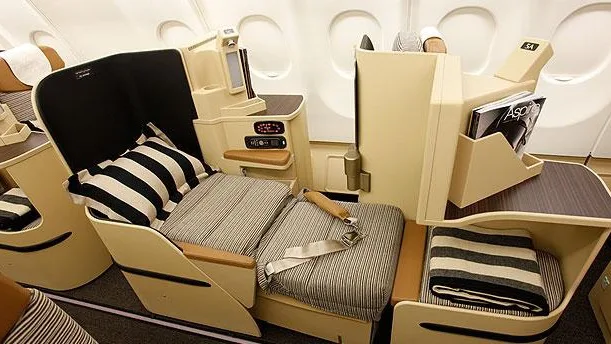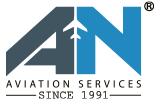
Flying business class is often seen as a luxury reserved for high-flying executives or celebrities, but the truth is, you don’t have to break the bank to enjoy a premium flying experience. With a few smart strategies, you can stretch your travel budget and score a business class seat at a fraction of the usual cost. From using loyalty points to leveraging last-minute deals, these hacks will help you upgrade your next flight without the hefty price tag.
Here are 9 insider tips to help you fly business class without spending like a celebrity.
1. Use Frequent Flyer Miles or Credit Card Points
One of the easiest ways to snag a business class seat without paying full price is to use frequent flyer miles or credit card points. If you’re part of a frequent flyer program or use a rewards credit card, you can often redeem these points for an upgrade.
Pro Tip: Some credit cards offer sign-up bonuses that can cover a business class ticket outright. Also, keep an eye out for limited-time promotions where airlines may offer bonus miles or reduced point requirements for upgrades.
2. Look for Discounted Business Class Fares
While most people assume business class is always prohibitively expensive, airlines often offer discounted business class fares, especially during off-peak seasons or during sales. Booking early can sometimes reveal surprising discounts.
How to Find Deals: Check airline websites regularly, sign up for deal alerts, and use fare comparison tools. Sometimes, flying midweek or in less popular travel months can land you a great deal.
3. Bid for an Upgrade
Some airlines offer the chance to bid for a business class upgrade after you’ve booked your economy ticket. You can set the price you’re willing to pay, and if your bid is accepted, you’ll be enjoying the perks of business class at a reduced cost.
How It Works: After booking your flight, you’ll receive an email from the airline inviting you to bid for an upgrade. If your bid is successful, you’ll be informed before your flight, and your upgrade will be confirmed.
4. Take Advantage of Last-Minute Upgrade Offers
If you haven’t been able to upgrade ahead of time, you may still have a chance when checking in for your flight. Airlines often offer last-minute upgrades to business class at a significant discount if there are unsold seats.
When to Check: You can often find these deals when checking in online or at the airport kiosk. Keep an eye out for upgrade offers at the gate as well, especially on flights with many empty business class seats.
5. Fly During Off-Peak Times
Flying during off-peak hours or seasons can greatly increase your chances of snagging a business class seat for less. Airlines tend to offer better prices and more upgrade opportunities when flights are less crowded.
Best Times to Book: Try to book flights midweek or in the early morning, as these tend to be less busy times for travel. Avoid peak holiday seasons and major travel days like Fridays and Sundays, when demand is higher.
6. Sign Up for Airline Loyalty Programs
Even if you’re not a frequent traveler, signing up for an airline’s loyalty program can lead to unexpected perks, including discounted or free business class upgrades. Many airlines reward loyal customers with occasional promotions, upgrades, or special offers.
Maximize Your Benefits: Always make sure to add your loyalty number when booking flights. Some airlines also offer upgrades as part of promotions for members or during flight anniversaries.
7. Use a Travel Agent for Special Deals
While many travelers prefer to book directly online, sometimes travel agents have access to exclusive business class deals that you won’t find on your own. They may also be able to help you combine fares or find better deals by booking through airline partners.
Why Use an Agent: Travel agents often have insider access to discounts, unpublished fares, or packages that include business class upgrades at reduced rates.
8. Leverage Airline Alliances and Partnerships
If you’re a frequent flyer with one airline, you might be able to use your miles or points for upgrades on a partner airline through airline alliances like Star Alliance, SkyTeam, or Oneworld. These partnerships offer more flexibility and a greater chance of finding business class availability.
How to Maximize: Check which airlines are part of your frequent flyer program’s alliance. Sometimes booking through a partner airline can help you secure an upgrade for fewer miles or a lower price.
9. Keep an Eye Out for Mistake Fares
Airlines occasionally make pricing errors and list business class seats at a much lower rate than usual. These mistake fares don’t last long, but if you act fast, you can score an incredible deal.
How to Find Them: Subscribe to flight deal newsletters, set up fare alerts, or follow social media accounts that post mistake fares. When you spot one, book immediately, as these deals are often corrected within hours.
Conclusion: Business Class on a Budget is Possible
Flying business class doesn’t have to be out of reach if you know where to look for deals and how to make the most of loyalty programs, bidding systems, and last-minute offers. With these nine hacks, you can enjoy the comfort, extra space, and luxury of business class without paying the sky-high prices.
Next time you plan a trip, try out these strategies and see if you can upgrade your flying experience without blowing your budget. Who knows? You might be sipping champagne in business class on your next flight!

